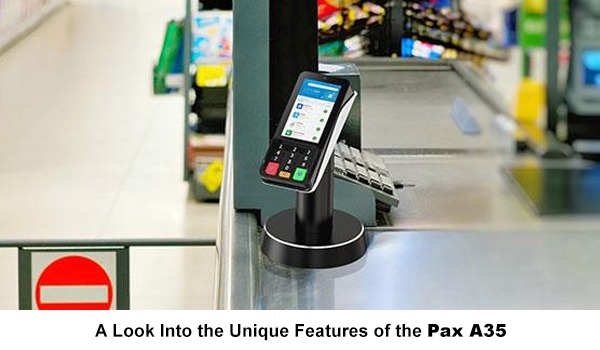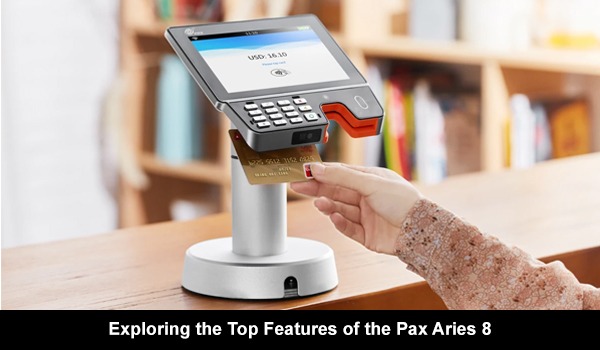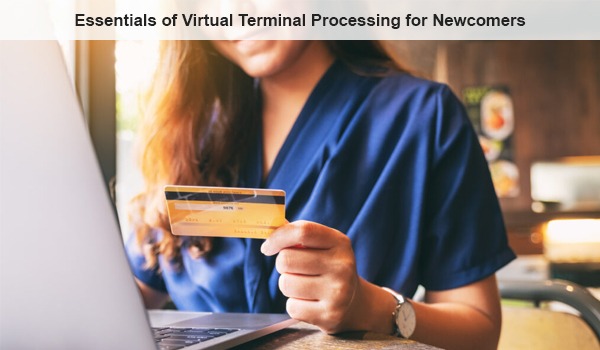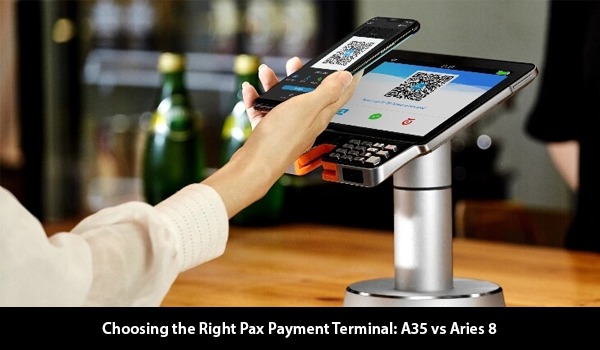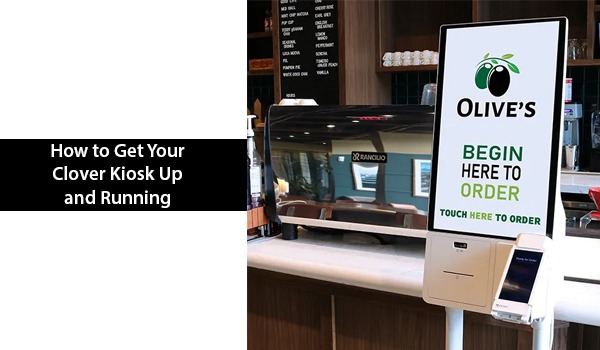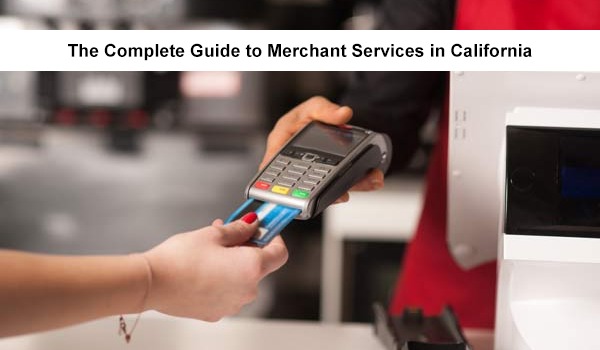
Introduction
Merchant services are the lifeblood of businesses throughout California, acting as the conduit for seamless payment transactions and paving the way for growth opportunities. This comprehensive guide is your key to unlocking the complexities of merchant services, providing invaluable insights into payment processing solutions, regulatory landscapes, and emerging trends. Whether you're a budding entrepreneur launching a startup or a seasoned executive steering an established enterprise, this guide is tailored to empower you with the knowledge and foresight needed to navigate California's dynamic merchant services landscape with confidence and success.
In the bustling hubs of Los Angeles, the tech mecca of Silicon Valley, and the quaint streets of San Francisco, businesses of all sizes rely on merchant services to facilitate transactions with customers near and far. From brick-and-mortar stores to online retailers and service providers, the ability to accept various forms of payment is essential for staying competitive in today's fast-paced market.
Throughout this guide, we'll delve into the intricacies of payment processing solutions, helping you understand the nuances of credit card processing, mobile payments, and e-commerce platforms. We'll explore the regulatory considerations that shape the merchant services industry in California, from state laws governing data privacy to federal regulations governing consumer protection. As technology continues to evolve at a rapid pace, we'll shed light on emerging trends such as contactless payments, subscription-based billing models, and the adoption of cryptocurrency.
Whether you're navigating the complexities of PCI DSS compliance or evaluating the latest innovations in payment technology, this guide serves as your trusted companion on the journey to success in California's vibrant business landscape. Join us as we unravel the intricacies of merchant services and empower you to thrive in an ever-evolving marketplace.
Understanding Merchant Services
Merchant services represent a multifaceted array of financial tools and solutions meticulously crafted to streamline payment processing for businesses across industries. At its core, merchant services serve as the backbone of transactional fluidity, enabling enterprises to effortlessly accept payments from customers across various channels. Let's delve deeper into the intricacies of merchant services to unravel their significance and functionality in the dynamic California business landscape.
- The Foundation of Financial Facilitation: Merchant services form the bedrock upon which seamless payment processing operations are built. This comprehensive suite of solutions encompasses a diverse range of functionalities tailored to meet the unique needs and preferences of businesses. From traditional credit card processing to cutting-edge point-of-sale (POS) systems and online payment gateways, merchant services provide the essential infrastructure required to facilitate transactions securely and efficiently.
- Enabling Seamless Transactions Across Channels: In a state as diverse and dynamic as California, businesses of all sizes and industries rely on merchant services to facilitate transactions seamlessly. Whether it's a bustling retail storefront in Los Angeles, an innovative tech startup in Silicon Valley, or an e-commerce venture in San Francisco, merchant services play a pivotal role in enhancing the overall customer experience and driving operational efficiency.
- Optimizing Customer Experience: In today's hyperconnected world, providing a frictionless payment experience is paramount for businesses looking to differentiate themselves and foster customer loyalty. Merchant services offer a plethora of features and functionalities aimed at optimizing the customer experience, from fast and secure payment processing to seamless integration with various payment methods and channels. By leveraging merchant services, businesses can elevate their brand image, build trust with customers, and drive repeat business.
- Tailored Solutions for Diverse Needs: One of the key strengths of merchant services lies in its versatility and adaptability to meet the diverse needs of businesses across industries. Whether it's a small local shop seeking a simple POS solution or a multinational corporation requiring robust e-commerce capabilities, merchant service providers offer a range of tailored solutions designed to address specific requirements and scale with business growth.
- Driving Business Growth and Innovation: Beyond facilitating transactions, merchant services serve as catalysts for business growth and innovation. By leveraging advanced analytics and reporting tools, businesses can gain valuable insights into customer behavior, preferences, and purchasing patterns, empowering them to make informed decisions and drive strategic initiatives. Additionally, emerging technologies such as mobile payments, contactless transactions, and blockchain-based solutions continue to reshape the landscape of merchant services, offering new opportunities for businesses to innovate and thrive.
In essence, understanding the intricacies of merchant services is essential for businesses seeking to thrive in the competitive California market. By harnessing the power of merchant services, businesses can streamline transactions, optimize customer experiences, and unlock new avenues for growth and innovation in an ever-evolving business landscape.
Payment Processing Solutions
Payment processing solutions stand as the cornerstone of modern merchant services, providing businesses with the capability to accept payments from customers using a variety of methods. From traditional credit and debit cards to digital wallets and contactless payments, the landscape of payment processing solutions is vast and varied. Let's explore the intricacies of these solutions and their significance in the context of California's dynamic business environment.
- The Heartbeat of Transactions: At the heart of every successful transaction lies a robust payment processing solution. These solutions act as the conduit through which funds flow from the customer's account to the merchant's, facilitating seamless exchanges of goods and services. Whether it's a retail transaction at a physical store, an online purchase on an e-commerce platform, or a mobile payment made via a smartphone, payment processing solutions play a fundamental role in enabling commerce to thrive.
- Diverse Array of Providers: In California, businesses have access to a diverse array of payment processing providers, each offering a unique set of features, capabilities, and pricing structures. From established financial institutions to innovative fintech startups, the market is teeming with options for businesses of all sizes and industries. Whether you're looking for a traditional merchant account provider, a mobile payment solution tailored for on-the-go transactions, or an e-commerce platform with integrated payment processing capabilities, there's a solution to suit every need and preference.
- Understanding Different Options: Navigating the landscape of payment processing solutions can be daunting, given the myriad of options available. Traditional merchant accounts offer reliability and stability, with established banks and financial institutions providing robust infrastructure and support. Mobile payment solutions, on the other hand, cater to the growing trend of on-the-go transactions, enabling businesses to accept payments anywhere, anytime using smartphones or tablets. E-commerce platforms offer seamless integration with online storefronts, simplifying the process of accepting payments for goods and services sold over the Internet.
- Selecting the Right Solution: Choosing the right payment processing solution is crucial for businesses seeking to optimize efficiency, maximize revenue, and enhance the overall customer experience. Factors to consider include transaction fees, processing times, security features, integration capabilities, and customer support. By carefully evaluating the different options available and aligning them with your business needs and goals, you can select a solution that meets your requirements and positions your business for success in the competitive California market.
- Embracing Innovation: As technology continues to evolve, payment processing solutions evolve alongside it, offering new opportunities for businesses to innovate and differentiate themselves. Emerging trends such as contactless payments, mobile wallets, and cryptocurrency acceptance are reshaping the landscape of payment processing, presenting businesses with new avenues for growth and expansion. By staying abreast of these developments and embracing innovative solutions, businesses can stay ahead of the curve and remain competitive in an ever-changing marketplace.
By understanding the different payment processing solutions available and selecting the right one for your business, you can streamline transactions, optimize efficiency, and drive success in the competitive California market.
Regulatory Requirements in California
California's merchant services industry operates within a regulatory framework that is both intricate and multifaceted, requiring businesses to adhere to a myriad of state and federal laws as well as industry standards. This section delves into the complexities of regulatory compliance, highlighting key laws and standards that businesses must navigate to operate lawfully in the state.
- Navigating the Regulatory Landscape: California's merchant services industry operates under the purview of various regulatory bodies, each with its own set of rules and requirements. From state agencies overseeing consumer protection to federal entities regulating financial transactions, businesses must navigate a complex web of regulations to ensure compliance with the law.
- Key Regulatory Considerations: One of the primary regulatory considerations for businesses in California is data privacy. The California Consumer Privacy Act (CCPA) imposes strict requirements on businesses handling personal information, requiring transparency in data collection and processing practices. Compliance with the CCPA is essential for protecting consumer privacy rights and avoiding hefty fines for non-compliance.
- In addition to data privacy regulations, businesses must also adhere to consumer protection laws aimed at safeguarding the rights and interests of customers. These laws govern various aspects of commercial transactions, including pricing transparency, advertising practices, and dispute resolution procedures. By complying with consumer protection laws, businesses can build trust with customers and maintain a positive reputation in the marketplace.
- Furthermore, businesses operating in the merchant services industry must comply with industry-specific standards such as the Payment Card Industry Data Security Standard (PCI DSS). PCI DSS sets forth requirements for securing payment card data and protecting it from unauthorized access or misuse. Compliance with PCI DSS is essential for safeguarding sensitive financial information and preventing data breaches that could undermine consumer trust and expose businesses to legal liabilities.
- Mitigating Legal Risks: Understanding and adhering to regulatory requirements is paramount for businesses seeking to mitigate legal risks and maintain trust with customers. Failure to comply with applicable laws and standards can result in severe consequences, including fines, penalties, and reputational damage. By implementing robust compliance programs and staying informed about regulatory developments, businesses can minimize the risk of non-compliance and demonstrate their commitment to ethical business practices.
Regulatory compliance is a critical consideration for businesses operating in California's merchant services industry. From data privacy regulations like the CCPA to consumer protection laws and industry standards such as PCI DSS, businesses must navigate a complex regulatory landscape to operate lawfully and maintain trust with customers.
Emerging Trends and Technologies
The merchant services landscape is in a constant state of evolution, spurred by technological advancements and evolving consumer preferences. In California, businesses are at the forefront of embracing innovative payment technologies that redefine the way transactions are conducted. This section explores the latest trends and technologies shaping the future of merchant services in the state.
- Embracing Innovation: Innovation is driving profound changes in the way businesses handle transactions, with California serving as a hub for pioneering advancements in payment technology. From contactless payments and mobile wallets to biometric authentication, businesses are embracing cutting-edge solutions that offer convenience, security, and efficiency in equal measure.
- Contactless Payments: Contactless payments have surged in popularity, offering a touchless alternative to traditional payment methods. With the rise of NFC (Near Field Communication) technology, customers can simply tap their cards or smartphones to complete transactions swiftly and securely. In a post-pandemic world where hygiene and safety are paramount, contactless payments have become the preferred choice for many consumers and businesses alike.
- Mobile Wallets: Mobile wallets have revolutionized the way consumers manage their finances, allowing them to store payment credentials securely on their smartphones. In California, businesses are leveraging mobile wallet platforms such as Apple Pay, Google Pay, and Samsung Pay to offer seamless payment experiences to their customers. With features like in-app purchases and loyalty program integration, mobile wallets are driving customer engagement and loyalty in the digital age.
- Biometric Authentication: Biometric authentication methods, such as fingerprint scanning and facial recognition, are gaining traction as a secure and convenient way to verify identity in payment transactions. By leveraging biometric data unique to each individual, businesses can enhance security and streamline the authentication process, reducing the risk of fraud and unauthorized access.
- Omnichannel Payment Integration: The concept of omnichannel payment integration is reshaping the retail landscape, allowing businesses to offer a seamless shopping experience across multiple channels. Whether it's in-store purchases, online transactions, or mobile commerce, customers expect a consistent and frictionless payment experience. By integrating payment systems across various touchpoints, businesses can meet the evolving needs of customers and drive sales growth.
- Subscription-Based Billing Models: Subscription-based billing models are gaining prominence, offering businesses a predictable revenue stream and customers a convenient way to access products and services regularly. From streaming services to subscription boxes, businesses across industries are embracing subscription-based models to monetize their offerings and build long-term customer relationships.
- Staying Ahead of the Curve: In a rapidly evolving marketplace, staying informed about emerging trends and technologies is essential for businesses seeking to remain competitive and meet the evolving needs of customers. By embracing innovation and adopting forward-thinking strategies, businesses in California can position themselves for success in the dynamic landscape of merchant services, driving growth, and delivering value in the digital age.
Choosing the Right Merchant Services Provider
Selecting the appropriate merchant services provider is a pivotal decision that can significantly impact the success and efficiency of businesses operating in California. This section explores the key factors that businesses should consider when evaluating merchant services providers and offers guidance on making informed decisions that align with their specific needs and goals.
- Critical Considerations: When embarking on the journey to select a merchant services provider, businesses must prioritize several critical factors to ensure a seamless and effective partnership. These factors include:
- Pricing and Fees: Transparent pricing structures and competitive fees are essential considerations for businesses seeking to optimize their operational costs while maintaining profitability.
- Payment Processing Capabilities: The provider's ability to support various payment methods, including credit cards, debit cards, mobile payments, and emerging technologies, is crucial for accommodating diverse customer preferences and maximizing revenue opportunities.
- Customer Support: Responsive and reliable customer support is paramount for addressing inquiries, resolving issues, and ensuring uninterrupted service, particularly in the event of technical glitches or payment processing errors.
- Security Features: Robust security measures, such as PCI DSS compliance, encryption protocols, and fraud prevention tools, are imperative for safeguarding sensitive financial data and protecting against cyber threats and fraudulent activities.
- Scalability: As businesses grow and evolve, scalability becomes a critical consideration to accommodate increasing transaction volumes, expand product offerings, and adapt to changing market dynamics.
- Conducting Due Diligence: Before committing to a merchant services provider, businesses should conduct thorough research and due diligence to evaluate each provider's offerings and assess their compatibility with their specific needs and requirements. This process may involve:
- Requesting quotes and proposals from multiple providers to compare pricing, features, and terms.
- Reviewing customer testimonials and references to gauge satisfaction levels and reliability.
- Seeking clarity on contract terms, cancellation policies, and any additional fees or charges.
- Making an Informed Decision: Armed with comprehensive information and insights, businesses can make informed decisions when selecting a merchant services provider that best aligns with their objectives and values. By prioritizing factors such as pricing transparency, payment processing capabilities, customer support quality, security standards, and scalability, businesses can establish a partnership that fosters growth, enhances operational efficiency, and delivers superior customer experiences.
Choosing the right merchant services provider is a critical decision that requires careful consideration and due diligence. By prioritizing factors such as pricing, payment processing capabilities, customer support, security features, and scalability, businesses in California can select a provider that meets their specific needs and empowers them to thrive in a competitive marketplace. With the right partner by their side, businesses can streamline operations, optimize revenue streams, and deliver exceptional value to their customers.
Conclusion
Merchant services form the backbone of California's business ecosystem, enabling organizations to facilitate seamless payment transactions and drive growth. By understanding the various aspects of merchant services, from payment processing solutions to regulatory requirements and emerging trends, businesses can navigate the landscape effectively and unlock new opportunities for success. Whether you're a local retailer, an e-commerce entrepreneur, or a multinational corporation, leveraging the right merchant services provider and staying informed about industry developments are key to thriving in California's dynamic business environment.
